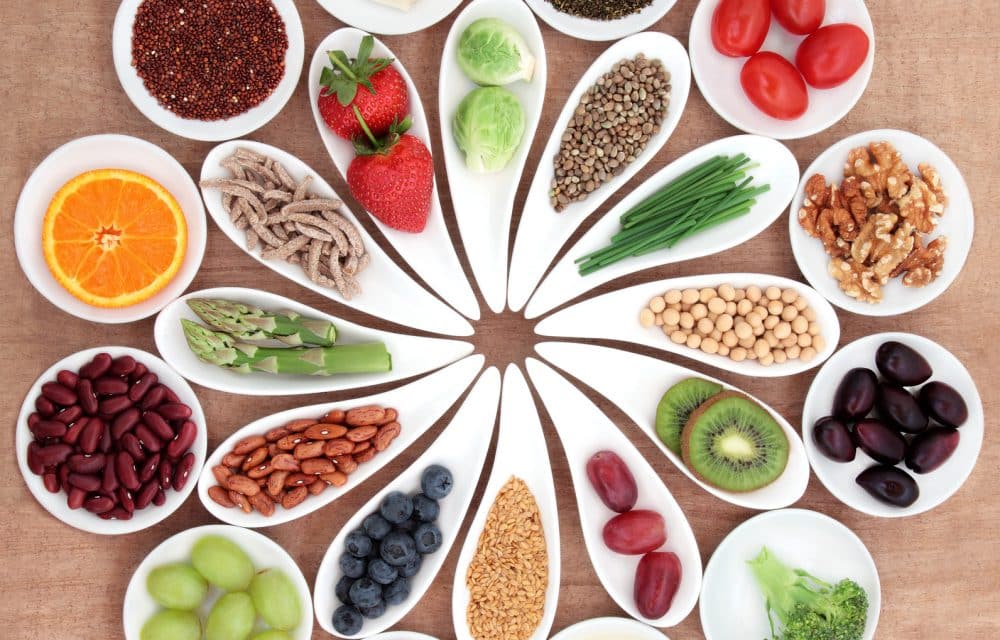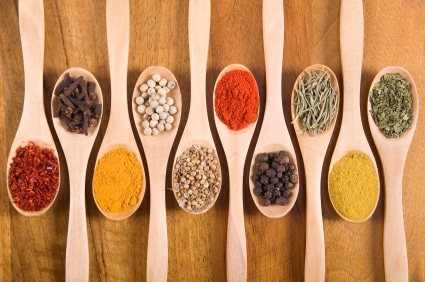Are You Working Out Hard Enough
 Before you get the idea that you should discontinue all types of exercise because you’re not getting the results you want, you need to stop and see if you’re working out hard enough to make a difference. Don’t get me wrong, I applaud all forms of exercise. Doing something is always better than doing nothing at all, but for those who want to reach specific goals and see a difference from their workout, putting in the time isn’t enough. It takes commitment to getting the most from your workout time.
Before you get the idea that you should discontinue all types of exercise because you’re not getting the results you want, you need to stop and see if you’re working out hard enough to make a difference. Don’t get me wrong, I applaud all forms of exercise. Doing something is always better than doing nothing at all, but for those who want to reach specific goals and see a difference from their workout, putting in the time isn’t enough. It takes commitment to getting the most from your workout time.
Can you zip through your workout without breaking a sweat?
That may be part of the problem. When you first started working out, you probably grunted and groaned a lot through each movement. The longer you worked out, the easier the routine became. That’s because the workout did what it was supposed to do, got you in better shape. However, if you’re still doing the same workout after several months, there’s a problem! Not only should you be increasing the number of reps, number of sets, intensity or amount of weight, you should be varying your workout. Your body becomes efficient, which means it burns fewer calories causing plateauing.
One sign you’re not working out hard enough is that you can talk while working out.
Heck, some people that are piking it, can even sing! While they may have great voices, they should be gasping for air while they bend, twist and lift their way to fitness. One test of effort from the U.S. Office of Disease Prevention and Health Promotion is how much you can say. If you can utter more than a few gasping works and don’t need a break, it’s time to ramp it up and get serious.
You’re not working out hard enough if you feel great and ready to go dancing after working out.
Don’t expect muscle soreness every time, but you should have it on the days you’ve worked your hardest. Otherwise, you haven’t given muscles a true workout, but at least you’ve kept moving. If you want more than just maintenance and make true progress, you’ve got to do more as you get fitter. Your body will let you know by mild soreness that reminds you that you’ve worked it hard. Remember, there’s a big difference between pain and soreness. Pain should never be ignored and soreness should be applauded for the hard work it took to create it.
- If you’re getting the aid of technology and checking your heart rate, anything less than 64 percent of its maximum is piking it, between 64 and 76 percent is moderate and 76 and 90 percent is a great workout.
- Seeing changes in your body is a top clue that you’re getting the workout you intended. If your weight hasn’t budged, but your not increasing your caloric intake and there’s no difference in muscle size or clothing size, you need to work harder.
- If you leave the gym just as dry and cool as you came in and don’t even require a shower, you didn’t sweat…which means you didn’t workout as hard as you should have.
- If you end the workout feeling like you still could do more, you haven’t worked hard enough.



 Many people in the workforce find themselves facing the dilemma of being unable to sit comfortably, lift or even move because of excruciating back pain. That leads to one of the biggest reasons for disability claims. It doesn’t have to be that way. You can exercise to prevent and relieve back pain. There’s a lot of reasons for the surge of this painful condition. One of them is prolonged sitting. Lack of activity and functional fitness is at the top of the list. Your muscles need to stretch and move to be at their healthiest. Improved circulation, strength and flexibility help tremendously. At one time, muscle relaxers and pain medication were at the top of the treatment list. With the high rise in pain medication addiction and more understanding of the problem, that’s no longer true.
Many people in the workforce find themselves facing the dilemma of being unable to sit comfortably, lift or even move because of excruciating back pain. That leads to one of the biggest reasons for disability claims. It doesn’t have to be that way. You can exercise to prevent and relieve back pain. There’s a lot of reasons for the surge of this painful condition. One of them is prolonged sitting. Lack of activity and functional fitness is at the top of the list. Your muscles need to stretch and move to be at their healthiest. Improved circulation, strength and flexibility help tremendously. At one time, muscle relaxers and pain medication were at the top of the treatment list. With the high rise in pain medication addiction and more understanding of the problem, that’s no longer true.
 If you want to extend your lifespan, just move! You don’t need a formal training program, although they do provide a wide assortment of exercises for your entire body and all types of fitness. Adding more movement to your life, whether it’s just getting up and walking for a few minutes or doing a jumping jack or two every ten minutes, can boost your longevity. Studies show that people who move more have better cardiovascular and metabolic function. In fact, inactivity is up at the top in number four position of preventable deaths. Obesity is number one and everyone knows that inactivity can lead to obesity.
If you want to extend your lifespan, just move! You don’t need a formal training program, although they do provide a wide assortment of exercises for your entire body and all types of fitness. Adding more movement to your life, whether it’s just getting up and walking for a few minutes or doing a jumping jack or two every ten minutes, can boost your longevity. Studies show that people who move more have better cardiovascular and metabolic function. In fact, inactivity is up at the top in number four position of preventable deaths. Obesity is number one and everyone knows that inactivity can lead to obesity.
 If you’ve heard the term “inflammation” but aren’t quite sure what it means, you probably aren’t alone. It occurs as a response from the body to protect itself. There are two types of inflammation and this is usually where people get confused. There’s the acute type that occurs all of a sudden, like bashing your finger or getting a cold. The body gets into gear and sends it’s soldiers, the white blood cells, to protect it from infection. It makes the area red and swollen. Chronic inflammation comes from continual exposure to toxins or stress. It can damage the heart and create walls to block accumulated plaque in the blood vessels. When those fail, it creates a clot and that can cause heart attacks and strokes. There are many medications to fight inflammation, but some of the best are found in your spice cabinet. You can save money by growing them yourself. Here are herbs you can grow to fight inflammation.
If you’ve heard the term “inflammation” but aren’t quite sure what it means, you probably aren’t alone. It occurs as a response from the body to protect itself. There are two types of inflammation and this is usually where people get confused. There’s the acute type that occurs all of a sudden, like bashing your finger or getting a cold. The body gets into gear and sends it’s soldiers, the white blood cells, to protect it from infection. It makes the area red and swollen. Chronic inflammation comes from continual exposure to toxins or stress. It can damage the heart and create walls to block accumulated plaque in the blood vessels. When those fail, it creates a clot and that can cause heart attacks and strokes. There are many medications to fight inflammation, but some of the best are found in your spice cabinet. You can save money by growing them yourself. Here are herbs you can grow to fight inflammation.
 Just as there are reasons to exercise every day, there are a lot of reasons that workout is not necessarily at the gym. Exercising is more than just a regular workout doing body weight exercises, treadmill or other tough muscle stressing workouts. It’s getting out and having fun, while also improving your overall fitness. There are people who workout at the gym at high intensity levels for hours, every day. That’s not healthy! Your muscle groups need time to recoup. You need to have a blend of intensity levels, plus use a variety of different muscle groups.
Just as there are reasons to exercise every day, there are a lot of reasons that workout is not necessarily at the gym. Exercising is more than just a regular workout doing body weight exercises, treadmill or other tough muscle stressing workouts. It’s getting out and having fun, while also improving your overall fitness. There are people who workout at the gym at high intensity levels for hours, every day. That’s not healthy! Your muscle groups need time to recoup. You need to have a blend of intensity levels, plus use a variety of different muscle groups.
 I don’t normally blog about things like loneliness and stick normally with fitness topics, like exercise and diet. However, I was just reading about the effects of loneliness on health and realized that it not only is becoming an epidemic, it’s almost as lethal as obesity. Unfortunately, when people are obese, they also isolate themselves from others, creating a double dose of problems. Even though everyone in Louisville KY is friendly, there’s still an epidemic of loneliness here. It’s one reason that people often find that our group training provides more benefits. Not only are the participants getting a great workout and expert nutritional advice, they’re also making friends and having social interaction that’s fun.
I don’t normally blog about things like loneliness and stick normally with fitness topics, like exercise and diet. However, I was just reading about the effects of loneliness on health and realized that it not only is becoming an epidemic, it’s almost as lethal as obesity. Unfortunately, when people are obese, they also isolate themselves from others, creating a double dose of problems. Even though everyone in Louisville KY is friendly, there’s still an epidemic of loneliness here. It’s one reason that people often find that our group training provides more benefits. Not only are the participants getting a great workout and expert nutritional advice, they’re also making friends and having social interaction that’s fun.
 If you’ve followed every diet, you’ve probably eating every two hours, had normal meals or packed all your meals into a short time frame in an effort to lose weight. It’s been popular for weight loss experts to tell clients to eat more often for weight loss, because some studies showed that it boosts metabolism and keeps you burning calories in high gear throughout the day. However, other studies show that eating normal meals works just as well. Finally, there are also studies that show that intermittent fasting for 16 hours and eating all meals in an eight hour window also has weight loss and other benefits. Which one is right? Maybe they all are.
If you’ve followed every diet, you’ve probably eating every two hours, had normal meals or packed all your meals into a short time frame in an effort to lose weight. It’s been popular for weight loss experts to tell clients to eat more often for weight loss, because some studies showed that it boosts metabolism and keeps you burning calories in high gear throughout the day. However, other studies show that eating normal meals works just as well. Finally, there are also studies that show that intermittent fasting for 16 hours and eating all meals in an eight hour window also has weight loss and other benefits. Which one is right? Maybe they all are.
 I’m always telling clients to learn to use herbs and spices when cooking, to boost flavor and add nutrients without adding extra calories. There’s a number of special herbs that play an even more vital role in health. They’re called adaptogens. An adaptogen provides the material to help your body cope more easily with the stresses of living that can suck the energy out of it. They help boost the immune system, provide aid in keeping weight under control, improve endurance, make you feel better and even improve your mood.
I’m always telling clients to learn to use herbs and spices when cooking, to boost flavor and add nutrients without adding extra calories. There’s a number of special herbs that play an even more vital role in health. They’re called adaptogens. An adaptogen provides the material to help your body cope more easily with the stresses of living that can suck the energy out of it. They help boost the immune system, provide aid in keeping weight under control, improve endurance, make you feel better and even improve your mood.
 Sure, a massage feels good, but there are also other body benefits of massage that can improve your functioning and health. After a tough workout, it can help to improve circulation and loosen tight muscles and tendons. That allows blood to circulate better and can whisk off the build up lactic acid in your muscle fiber. You’ll speed recovery time and have better pain management. Some athletes like their massage before a workout to warm muscle tissue and improve flexibility. Either way, a massage provides benefits.
Sure, a massage feels good, but there are also other body benefits of massage that can improve your functioning and health. After a tough workout, it can help to improve circulation and loosen tight muscles and tendons. That allows blood to circulate better and can whisk off the build up lactic acid in your muscle fiber. You’ll speed recovery time and have better pain management. Some athletes like their massage before a workout to warm muscle tissue and improve flexibility. Either way, a massage provides benefits.